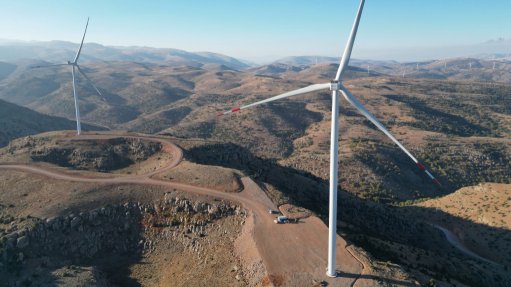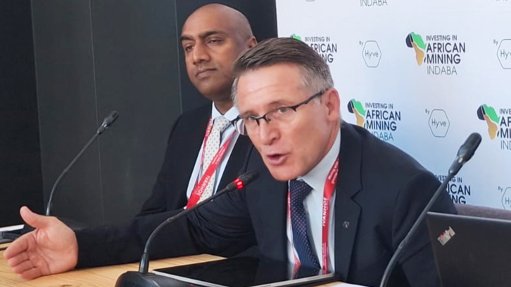A Covid reminder
The ubiquitous face mask is now gone. So too have the rigid lockdowns that saw many of us work from home for the better part of the period from 2020 to early 2021. But not all reminders that our continent – as well as the rest of the world – was once ravaged by the Covid-19 pandemic are gone. Corporate executives whose companies’ market caps have shrunk over the past couple of years will attest to that.
The latest evidence of the paring down of the earnings of Africa’s top companies comes from a survey by African Business, a pan-African magazine published in London. Released last month, the survey of 250 listed corporate giants showed an erosion of total market value from $701-billion in 2022 to $561-billion this year.
The 2023 figure represents a strong recovery from the low of $556-billion recorded in 2020, when the pandemic was at its zenith. However, as one commentator remarked, “the bounce-back from the first phase of the Covid-19 pandemic has not been sustained”.
The biggest contributor to the market value erosion were South African companies, the stocks of which fell from $488-billion to $375-billion over the past year. The slide was driven by, among others, rand weakness against the dollar and the poor performance of this country’s economy, partly as a result of which the number of South African companies in the Top 250 fell from 133 in 2022 to 96 this year. The delisting of Massmart also contributed to the decline.
Be that as it may, South African companies continue to dominate the rankings, with Naspers, whose market capitalisation at the end of March this year was $80.87-billion, at the apex. FirstRand was a distant second, with a market capitalisation of $19.09-billion, followed by Standard Bank Group ($16.35-billion), Vodacom ($14.29-billion), MTN Group ($13.54-billion), Gold Fields ($11.94-billion) and Capitec (($11.04-billion). MTN Nigeria’s $10.6-billion market capitalisation secured it ninth position, while AngloGold Ashanti, with a market capitalisation of $10.2-billion, rounded out the top ten.
The 96 South African corporations that made African Business’s Top 250 this year account for 67% of the combined value of the ranked companies, with Nigerian companies’ share being 9.3%, compared with 8.8% and 4.7% for Moroccan and Egyptian companies respectively.
That the top ten – and indeed the top 20, where 15 South African companies feature – of the rankings is dominated by businesses whose shares are traded on the JSE does not mean that there are no businesses of a similar size elsewhere on the continent. We know that some of Africa’s biggest corporate behemoths, such as Angolan oil parastatal Sonangol and its Algerian counterpart, Sonatrach, are not listed entities. Moreover, as I wrote in this column last week, a recent McKinsey study revealed that Africa had 438 companies with yearly revenues exceeding $1-billion. Of these, 60% are privately owned, while 25% are the subsidiaries of foreign-domiciled multinationals.
Covid is a recurring theme in projections of business and economic performance this year and beyond, with the Economist Intelligence Unit (EIU) stating in its ‘Africa Business Outlook Report 2023’: “The combination of the economic and socioeconomic fallout from the pandemic, poor economic management, historical political legacies and external global shocks have derailed plans to significantly diversify and grow many African economies.”
Thankfully, the majority of the executives of companies with operations in South Africa who were canvassed for the EIU’s report stated that although they were concerned about loadshedding, they would increase the level of their investments in the country during 2023. Overall, the majority of the survey respondents stated that, while they deemed the business outlook to be a major risk to investment plans, they intended to invest “at the right rate”, with some stating they were looking to Africa for expansion opportunities.
Article Enquiry
Email Article
Save Article
Feedback
To advertise email advertising@creamermedia.co.za or click here
Comments
Announcements
What's On
Subscribe to improve your user experience...
Option 1 (equivalent of R125 a month):
Receive a weekly copy of Creamer Media's Engineering News & Mining Weekly magazine
(print copy for those in South Africa and e-magazine for those outside of South Africa)
Receive daily email newsletters
Access to full search results
Access archive of magazine back copies
Access to Projects in Progress
Access to ONE Research Report of your choice in PDF format
Option 2 (equivalent of R375 a month):
All benefits from Option 1
PLUS
Access to Creamer Media's Research Channel Africa for ALL Research Reports, in PDF format, on various industrial and mining sectors
including Electricity; Water; Energy Transition; Hydrogen; Roads, Rail and Ports; Coal; Gold; Platinum; Battery Metals; etc.
Already a subscriber?
Forgotten your password?
Receive weekly copy of Creamer Media's Engineering News & Mining Weekly magazine (print copy for those in South Africa and e-magazine for those outside of South Africa)
➕
Recieve daily email newsletters
➕
Access to full search results
➕
Access archive of magazine back copies
➕
Access to Projects in Progress
➕
Access to ONE Research Report of your choice in PDF format
RESEARCH CHANNEL AFRICA
R4500 (equivalent of R375 a month)
SUBSCRIBEAll benefits from Option 1
➕
Access to Creamer Media's Research Channel Africa for ALL Research Reports on various industrial and mining sectors, in PDF format, including on:
Electricity
➕
Water
➕
Energy Transition
➕
Hydrogen
➕
Roads, Rail and Ports
➕
Coal
➕
Gold
➕
Platinum
➕
Battery Metals
➕
etc.
Receive all benefits from Option 1 or Option 2 delivered to numerous people at your company
➕
Multiple User names and Passwords for simultaneous log-ins
➕
Intranet integration access to all in your organisation


















